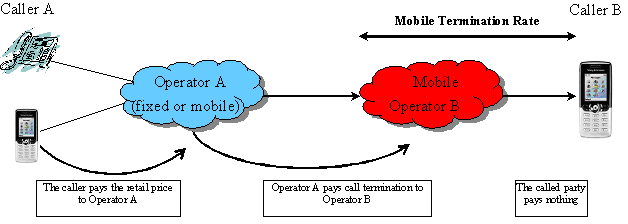AT&T’s “sponsored data” – a toll-road to nowhere
On 6 January, the US fixed and mobile operator AT&T announced a “service” allowing online services (such as search engines, social media, etc) to pay (“sponsor”) the data costs of end-users. Currently, people often have to pay for data that they download from the internet, whereas AT&T’s programme would allow certain services to be provided for “free” outside of data download limits. The operator describes this as similar to freephone numbers that are provided by companies, to allow them to be contacted for free. The only problem is that “sponsored” internet services are as similar to freephone numbers as turkeys are to jumbo jets.
The reason why we have a vast amount of innovative, new and evolving services online is because any new service can access all internet users, without discrimination. If mobile internet users have a choice between using big, well-funded companies (such as the existing big online companies) for free and paying to try a new, innovative service, with an invisible meter running faster and faster with every click, chances are that they will stick to their free lunch. Unfortunately, there is no such thing as a free lunch – and the cost of this free lunch will be very high indeed.
Firstly, it is likely that there will then be fully sponsored, partly sponsored and non-sponsored online services, layered on top of mobile billing schemes that are already eye-wateringly confusing. But, the mobile operators will argue that they have no incentive to be unclear. However, they have a very big incentive. According to one study, UK mobile users pay an average of 44% too much, as a result of choosing the wrong billing plan from the dazzling panoply of options available.
Mobile operators have made huge profits out of having a de facto monopoly of reception of phone calls onto their networks (“mobile termination rate – MTR” or “sending party pays – SPP” in policy geek speak).

Figure 1, image courtesy of ARCEP: We can see here that Mobile Operator B is a “gatekeeper” – you cannot call that operator’s customers without paying the price. This is fundamentally different from the Internet, where people anyone can put their information or service online and anyone can access it – the internet access provider is “neutral” in the process.
In the context of telephony services, this MTR monopoly is almost entirely immune from competitive pressures, simply because people rarely check to see how much it costs to call them. That is why roaming charges have cost so many travellers so much money to receive calls. That is also why Europeans were paying 10,000,000,000 Euro too much for making phone calls in 2008, until the European Commission finally addressed the problem – regulating a market that is immune to competition.
And this is why European operators have been actively publicly campaigning for a “sending party pays” model for Internet traffic. In the AT&T plan, the online service (the “sending party”) would pay to gain access to the internet access providers’ customers at a preferential rate. The operator can get paid twice for one service – connecting the subscriber to the Internet and paying online services to connect to their subscribers.
This is why European operators are campaigning against net neutrality – if they were able to milk European consumers for 10 billion Euro of unnecessary spending until the regulators finally fixed the biggest problems in the mobile call termination market and if it took nearly a decade of laborious regulatory effort to catch up with this behaviour and address it, why on earth would they not try to gobble up the same easy money in the internet market? And why would we let them?
But shouldn’t we be sympathetic to the need of operators to make money? Well, if AT&T’s mobile data revenues were not climbing quite as rapidly as the are, (up an impressive 19.8% between Q2 2012 and Q2 2013) one could understand their logic. Of course, as competition declines and innovation fails to generate more services, as a result of the market being strangled by the fictitious free lunch offered by the short-sighted introduction of “sponsored services”, this growth will be unsustainable in the medium and long term. Perhaps the mobile operators should be more sympathetic to the their own need to make money.
The European Commission has – after years of fighting the costly anti-competitive effects of mobile call termination – now proposed a Regulation which aims at creating a “freedom” for individuals to choose between many confusing services. The Regulation speaks of “network neutrality” is littered with loopholes. EDRi and like-minded NGOs are fighting to close these loopholes. The future of the open, competitive internet in Europe – with significant global consequences – will be decided by the European Parliament in the coming weeks.
Follow our campaign savetheinternet.eu, our website and twitter account to help us fight for our digital freedom.
